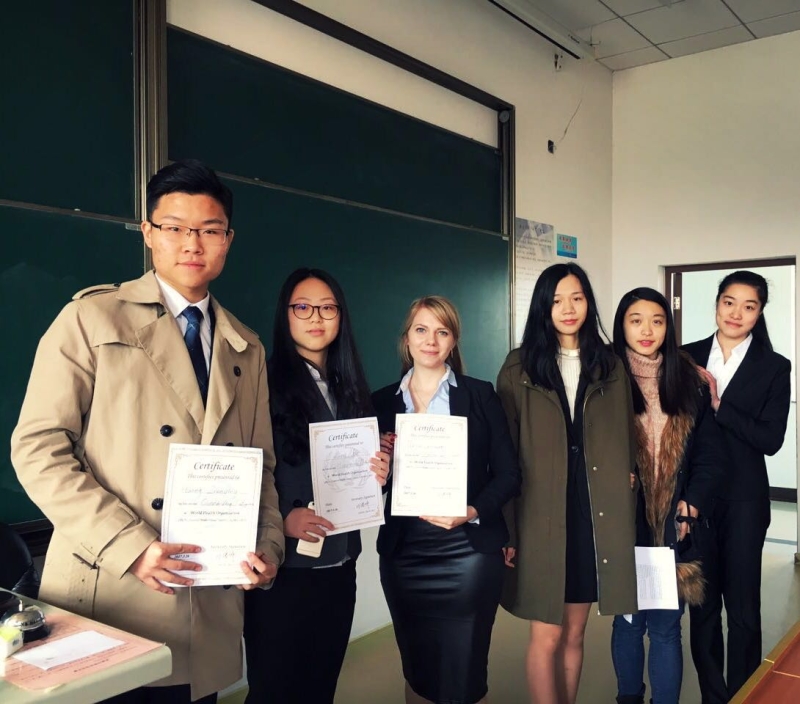Model United Nations of Shanghai University of Political Science
This week March 25 – 26 Shanghai University of Political Science and Law organized the Model United Nations. Because the framework of this conference limited, there were just two committee: the United Nations Educational, Scientific and Cultural Organization (UNESC) and the World Health Organization (WHO).

The agenda of WHO committee was “Global Epidemic Prevention and Control Mechanism”. Nowadays world community is facing a great amount of socio-economic and demographic stability threats as well as national and international security risks, including especially dangerous – pandemics. The topic for the discussion was as relevant as ever because thousands of people died of the epidemic. Even today outbreak of epidemics is continuing to affect some countries. The solution of pandemics problems cannot be achieved only by professional medical efforts but it requires political support and coordinated international political cooperation at different levels that determine involvement in this issue national, regional and international political institutions, thus the main task of the WHO is to shoulder the responsibilities of maintaining people’s health.
Within two days of the conference, the Committee raised the following issues, which were reflected in the final resolution:
·financial support and the methods of improving the control system of spending money on financial help to the countries which faced pandemic problem;
·propaganda of healthy lifestyle;
·increase the baseline level of education and propaganda of safely managed sanitation to reduce child mortality and help to resist pandemics;
·food safety and water resource control, including water safety;
·environmental infection control in the regions which are infected by pandemics;
·acceleration of the research and injection rate of vaccine;
·cooperation with the private sector and non-governmental organizations that can increase the access to treatment (especially by supporting local production of medicines and drugs) under the government control;
·fear and stigma as a human reaction to the disease, social discrimination of people who recovered or infected people;
·the problem of secondment or temporary secondment of infected people;
·collaboration in the framework of database system which is considered as an international base of world epidemic disease, which will collect information about the symptoms of infected people, deep explore the reasons of getting infections, and diagnosis the disease.
This is not the whole list of issues that are considered to be necessary for discussion. But still, the delegates of WHO developed some specific measures to solve aforementioned problems.

Actually, this MUN was a good attempt to create a strong response to global issues. But looking in reality, not all the measures can be acceptable, for instance, developed countries cannot afford to invest more, the strong system of corruption in developing countries which are facing pandemic problem doesn’t allow some humanitarian project to be realized, the transparence of real amount infected people are hidden by the countries administrations, not every government is able to enhance the educational baseline, ect.
Generally speaking, the MUN was an excellent experience to contribute developing students’ communication skills, to discuss challenging and topical international problems, to seek and reach compromises. (Text/photo:瑪麗亞)
School of International Communication and Exchange
March 26th,2017

